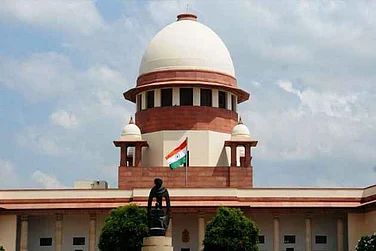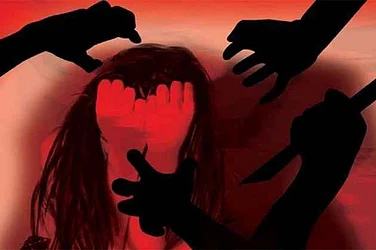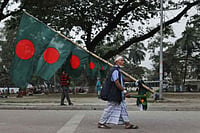Cinema returned to strife-torn Manipur on Tuesday after more than 20 years when a Bollywood movie on surgical strikes against Pakistan was screened at a makeshift open-air theatre in Churachandpur.
Vicky Kaushal Starrer's "Uri: The Surgical Strike" was attended by a large number of people at Rengkai (Lamka).
The screening was organised by the Hmar Students Association (HSA) to express its opposition to the ban on Hindi movies imposed in September 2000 by 'The Revolutionary People's Front', a political wing of the proscribed People's Liberation Army, a valley-based Meitei terror group.
"It has been over two decades since a movie was screened in our town. The Meiteis have banned Hindi movies for a long long time.
"Today's move is to defy the anti-national policies of the Meitei groups and to show our love for India," Ginza Vualzong, spokesperson of the Indigenous Tribal Leaders' Forum, said in a brief statement.
The organisation describes itself as the voice of the Kuki tribes.
Before the screening of the movie, the national anthem was played at the open-air theatre, located 63 km from the capital city.
Manipur has been witnessing widespread ethnic clashes between the majority Meitei and tribal Kuki communities since May 3 and so far over 160 people have been killed.
On Monday, the HSA said the screening is to show "our defiance and opposition to terror groups which have subjugated the tribals for decades".
"Join us in taking a pledge to continue our fight for freedom and justice," it appealed.
The HSA said the last Hindi film that was publicly screened in Manipur was "Kuch Kuch Hota Hai" in 1998.
Officials said that within a week of the ban in 2000, rebels had burnt 6,000 to 8,000 video and audio cassettes and compact discs in Hindi collected from outlets in the state.
Though the RPF gave no reason for the ban in the northeastern state, cable operators said the militant group feared the negative impact of Bollywood on the state's language and culture.
'Uri' Screened In Manipur, First Hindi Film To Be Shown In 23 Years
After 20 years, Bollywood movies returned to strife-torn Manipur on Tuesday with a screening of a surgical strike movie against Pakistan.

Wave of militancy Stills from Uri: The Surgical Strike
Wave of militancy Stills from Uri: The Surgical Strike
Published At:
MOST POPULAR
WATCH
MORE FROM THE AUTHOR
PHOTOS
×





















